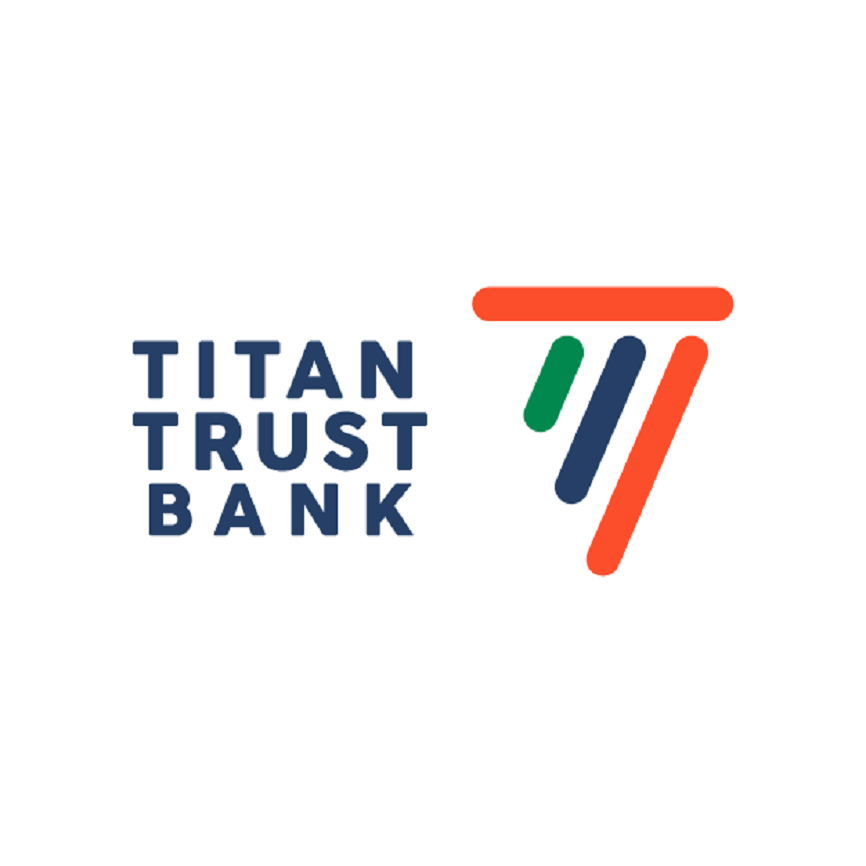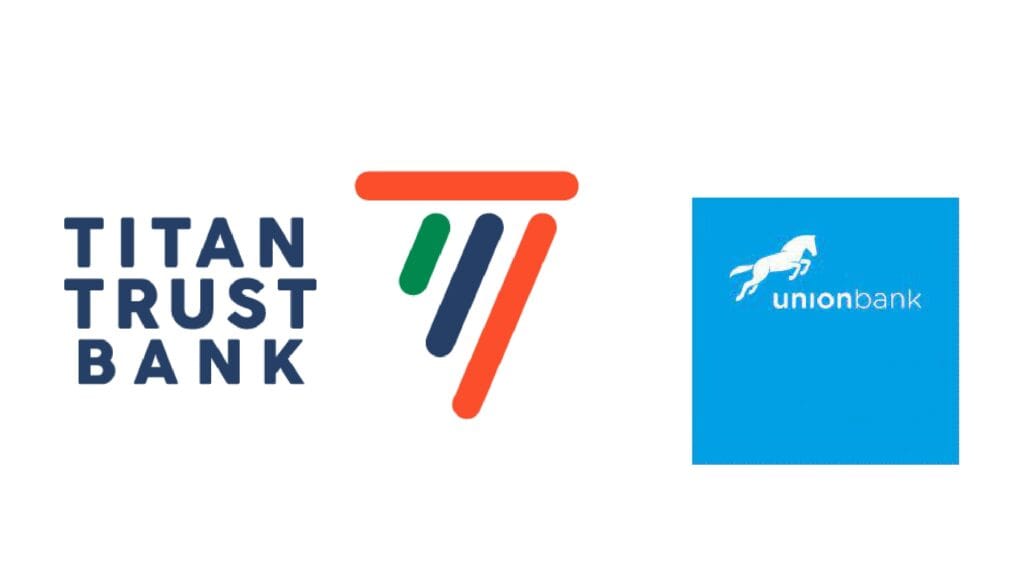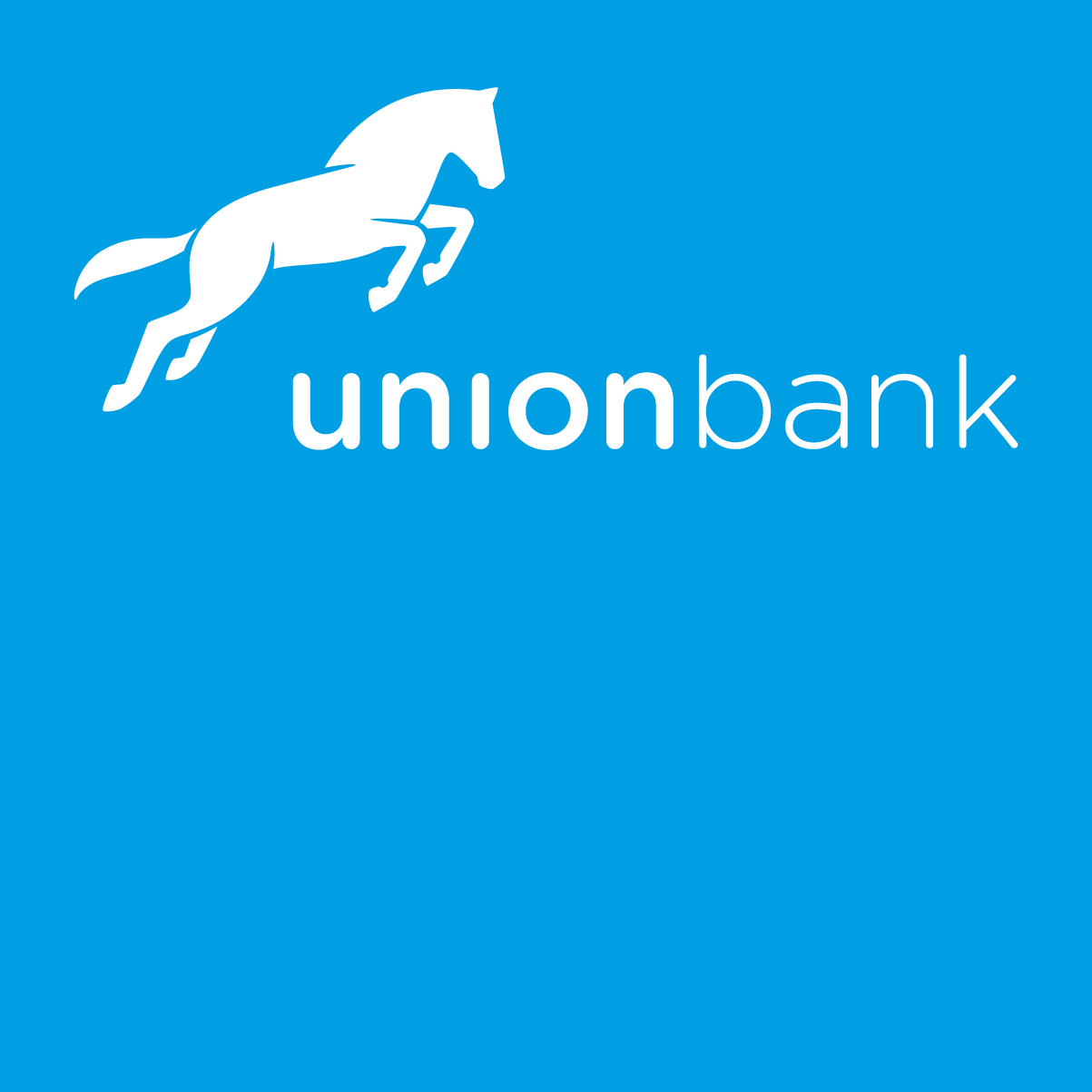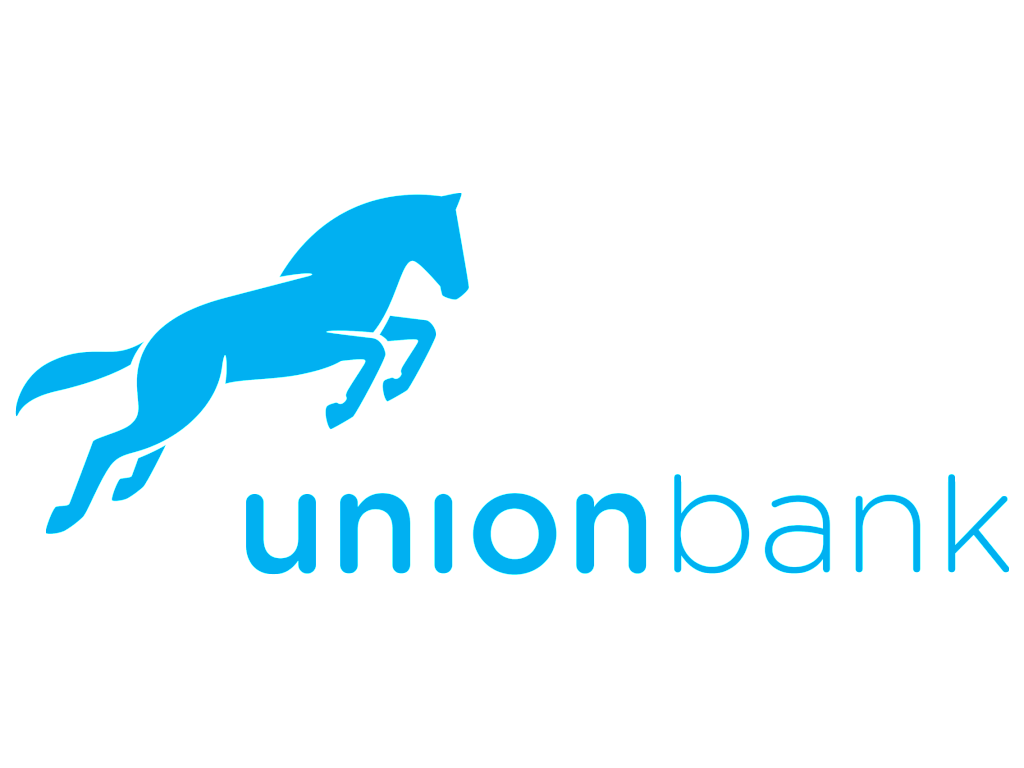Banking
Union Bank’s Acquisition: Titan Trust Bank Aims for Market Dominance, Targets Tier 1

By Oluwafemi Adeoye
With the recent acquisition of Union Bank of Nigeria (UBN) Plc by Titan Trust Bank Limited (TTB), a deal that took stakeholders by surprise last year, the latter is now positioned to maintain its lead as a technology-driven tier-1 bank, OLUWAFEMI ADEOYE writes.
When Titan Trust Bank Limited (TTB), one of the three newest entrants into the Nigerian banking industry, began operations in October 2019, many people gave it just a passing glance, but after a few years, the achievements of the lender have taken industry watchers by surprise.
Established on the 12th of December 2018 with a solid post-capitalization financial base in real cash, the bank has proven that it is ready to compete with long-standing and well-rooted Nigerian banks.
In pursuit of an expansionary course with the objective of building a stronger brand capable of taking on a larger market share of a continent striving for financial inclusion, the lender which is on a mission to take advantage of the identified gaps in the banking sector and address the unmet needs of the retail mass market, SMEs and corporates, again took the industry by surprise after it announced its acquisition of 89.4% interest in 104-year-old Union Bank, but later upped the stake to 93.4%, in barely four years of its existence.
Its expansionary drive could not have come at a better time with Tier-1 banks moving to HoldCo structures, FinTech standing as the next big thing, and the African economy desperately in need of strengthened financial systems.
The deal, regarded as one of the largest acquisition deals in the history of Nigeria’s banking industry, with an off-market deal worth N191 billion, was however formalized recently with Tropical General Investments Limited (TGI Group), the parent company of TTB, becoming majority shareholder and core investor in Union Bank.
The acquisition stands as the biggest in recent years, dwarfing the N120 billion Crown Mills paid to acquire Dangote Flour Mills and the N91 billion NIPCO paid for a majority share in Mobil Nigeria, capital market analysts noted. Also, this is the biggest deal in the banking space since the N72 billion merger between Access Bank and Diamond Bank Plc.
This is, however, not the first time that a smaller bank will acquire a bigger one in Nigeria, it is however the first time that an unlisted bank, which is barely four years old, will be acquiring a listed, century-old bank.
It is worthy to note that TGI Group, having been in Nigeria for over 3 decades with an established track record of successfully establishing and profitably running all their subsidiaries, is the perfect investor for Union Bank as they are evidently here for the long run rather than short term investors. This will obviously provide Union Bank with a lot of stability and the established expertise of TGI and the team that they have put together to make Union Bank a bank of the first choice for Nigerians in the very near future. Business analysts have, however, described the deal as a win-win for Nigerians and the Nigerian economy.
The completion of the Titan-Union deal has also seen the exit of the former board and management team of Union Bank and the emergence of Mr Farouk Mohammed Gumel and Mr Mudassir Amray as its board chairman and new Chief Executive Officer (CEO) respectively, effective June 2, 2022. Other board appointments under the new ownership of the bank include Mr Andrew Ojei, Alhaji Abubakar Mohammed, and Mr Lawrence Mackombo – all Non-Executive Directors.
But unknown to many, since the inception of TTB in October 2019, the bank has been on an upward trajectory and has further positioned itself as a challenger bank.
At the start of its operations, the management team led by Mr Mudassir Amray, the current chief executive of Union Bank, and Mrs Adaeze Udensi (current acting managing director of TTB), drew up a holistic and integrated approach to business modernization, which has formed the foundation for the bank’s superior customer-centric experience.
The impact of this strategic decision led to a positive impact on the bank’s performance within its first three months of operations where the bank recorded a profit after tax (PAT) of over N600 million.
In its determination to take financial services to every household in order to drive effective inclusion and participation in the recovery and growth of Nigeria’s economy, TTB invested substantially in technology and developed fully integrated service models that enable its customers to enjoy banking services through a wide range of channels. The bank believes in innovation, creativity, and the use of technology to enhance the lives of its customers while it also strives to ensure that its products and services are meeting the changing needs of its customers.
Recently, TTB launched and deployed the latest version of Oracle’s FCCM module, powering our AML/CFT infrastructure, used in over 120+ sites by top global banks. It has also invested in top-notch infrastructure for AML/KYC, as well as the Oracle Financial Services Analytical Application (OFSAA) to ensure rigorous analysis and measurement of its risk-performance objectives.
In less than three years of operation, TTB has grown to earn the confidence of the banking public, offering quality banking services with cutting-edge technology that enables its customers to enjoy banking services through a wide range of channels.
Therefore, with its recent acquisition of Union Bank, one of Nigeria’s long-standing and most respected financial institutions with a network of over 293 sales and service centres and over 937 ATMs spread across Nigeria, analysts believe the deal may trigger a fresh competition among money deposit banks in the country.
The lender has exhibited a grand ambition to mature to a Tier-1 bank in the next five years and is banking on its vast digital banking, strength to disrupt a space where the big five banks commonly known by their initials as FUGAZ hold sway.
The acquisition eases the path for TTB to become Nigeria’s sixth biggest lender, with Union Bank’s assets climbing in valuation to N2.6 trillion at the end of 2021 and Titan’s standing at N246 billion as of December 2021.
According to Mr Tunde Lemo, chairman of Titan Trust Bank, with the combination of TTB, a tier-3 bank, and UBN, a tier-2 bank, “we are going to see the emergence of a tier-1 bank.”
“Union Bank is one of the largest in terms of network. But we think that after 104 years of operation, it can be rejuvenated by a bank like Titan Trust Bank that has cutting-edge modern banking skills.
“We believe that by combining fintech strength with the brand value of UBN, we can make an impression in Nigeria by deploying modern banking to every nook and cranny of the country.
“The deal represents a unique opportunity to combine Union Bank’s longstanding and leading banking franchise with TTB’s innovation-led model, which promises to enhance the product and service offering for our combined valued customers.
“So, there will be a significant synergy between the two institutions,” he said.
With the new development, the bank is poised for market dominance in the financial services industry, especially in the retail segment.
Banking
CIBN to Back ACAMB on Professional Development, Industry Advocacy

By Modupe Gbadeyanka
The Chartered Institute of Bankers of Nigeria (CIBN) has promised to support the ambitious plans of the Association of Corporate and Marketing Professionals in Banks (ACAMB).
At a meeting between the leaderships of the two organisations on Tuesday, the president of CIBN, Professor Pius Deji Olanrewaju, said it was impressed with the capability development and the undergraduate mentorship schemes of ACAMB under its leader, Mr Jide Sipe.
The CIBN chief commended the forward-thinking vision of the group, saying it had raised standards across Nigeria’s banking sector.
“ACAMB’s support has given CIBN and the banking sector brand equity,” he said, praising the association’s record in reputation management. recalling ACAMB’s role in addressing crises within the sector, describing the partnership as strategic and beneficial.
He further pledged support for ACAMB’s 30th anniversary in September 2026, its AGM, and other programmes, including fundraising initiatives.
“I want to assure you that everything you have presented today has been clearly noted and will be acted upon.
“We are fully committed to working closely with you so as to translate these discussions and vision into measurable progress. Our shared goal is to strengthen the sector, protect its reputation, and enhance its public image in a meaningful and lasting way.
“This meeting discussed various initiatives and reforms crucial for the future of our industry, including the need for continuous training and adaptation to new programs,” Mr Olanrewaju stated.
Speaking at the meeting, the president of ACAMB described the visit as a crucial first step in his tenure, aimed at contributing significantly to giving flight to his vision and that of ACAMB.
“When we assumed office, one of the first things we agreed on was the need to visit key stakeholders.
“However, before reaching out more broadly, we felt it was important to begin with our primary constituency and core stakeholders. We want them to understand the direction we are taking and to support the work we are doing, so that ACAMB can achieve greater success than it has in the past.
“We couldn’t have properly started our tenure without this very important meeting with the CIBN,” Mr Sipe stated
He introduced the newly constituted ACAMB Exco, which includes the 2nd Vice President, Morolake Phillip-Ladipo; General Secretary, Olugbenga Owootomo; Assistant General Secretary, Ademola Adeshola; Publicity Secretary, Abiodun Coker; and Executive Secretary, Fadekemi Ajakaiye.
Banking
All Set for Second HerFidelity Apprenticeship Programme

By Modupe Gbadeyanka
Registration for the second HerFidelity Apprenticeship Programme (HAP 2.0) organised by Fidelity Bank Plc has commenced.
The Divisional Head of Product Development at Fidelity Bank, Mr Osita Ede, informed newsmen that the initiative was designed to empower women with sustainable entrepreneurship skills.
The lender created the flagship women-empowerment initiative to equip women with practical, income‑generating skills and structured pathways to entrepreneurship.
“HerFidelity Apprenticeship Programme 2.0 reflects our commitment to continuous improvement. Having evaluated feedback from the first edition, we have returned with stronger partnerships and deeper mentorship programmes to ensure that women acquire not just skills, but sustainable economic opportunities,” he said.
“At the heart of the programme is guided, real‑world learning. Participants will undergo intensive apprenticeship training under reputable institutions and industry experts across select fields such as hair styling, shoe making, auto mechatronics, and interior decoration,” Mr Ede added.
He noted that HerFidelity Apprenticeship Programme 2.0 goes beyond skills acquisition by offering participants a wide range of business advisory services. These include business and financial literacy training, mentorship support throughout the apprenticeship journey, access to Fidelity Bank’s women‑focused and SME financial solutions, as well as guidance on business formalisation and growth strategies.
Further emphasising the bank’s vision, Mr Ede said, “By integrating structured mentorship with entrepreneurial development, Fidelity Bank is positioning women not just as trainees, but as future employers, innovators, and economic contributors within their communities. This aligns with our mandate to help individuals grow, businesses thrive, and economies prosper.”
Banking
The Alternative Bank Opens New Branch in Ondo

By Modupe Gbadeyanka
A new branch of The Alternative Bank (AltBank) has been opened in Ondo State as part of the expansion drive of the financial institution.
A statement from the company disclosed that the new branch would support export-oriented agribusinesses through Letters of Credit and commodity-backed trade finance, ensuring that local producers can scale beyond state borders.
For SMEs, the bank is introducing robust payment rails, asset financing for equipment and inventory, and supply chain-backed facilities that strengthen working capital without trapping businesses in interest-based debt cycles.
The Governor of Ondo State, Mr Lucky Aiyedatiwa, represented by his Chief of
Staff, Mr Olusegun Omojuwa, at the commissioning of the branch, underscored the importance of financial institutions in economic development.
“The pivotal role of financial institutions to economic growth and development of any economy cannot be overemphasised. It provides access to capital, supporting small and medium-scale enterprises and encouraging savings.
“Therefore, I have no doubt in my mind that the presence of The Alternative Bank in Ondo State will deepen financial services, create employment opportunities and stimulate economic activities across various sectors,” he said.
In her remarks, the Executive Director for Commercial and Institutional Banking (Lagos and South West) at The Alternative Bank, Mrs Korede Demola-Adeniyi, commended the state government’s leadership and outlined the lender’s long-term vision for Ondo State.
“As Ondo State steps into its next fifty years, and into the future anchored on the sustainable development championed during the recent anniversary celebrations, The Alternative Bank is here to be the financial engine for that vision. We didn’t come to Akure to hang banners. We came to fund work, farms, shops, and factories.”
With Ondo State’s economy anchored largely on agriculture, particularly cocoa production, poultry farming, and other cash crops, alongside a growing SME and trade ecosystem, AltBank is deploying sector-specific financing solutions tailored to these strengths.
For cocoa aggregators, processors and poultry operators, the bank will provide production financing, facility expansion support, machinery lease structures, and structured trade facilities under its joint venture and cost-plus financing models, with transaction cycles of up to 180 days for commodity trades and longer-term structured asset financing for equipment and infrastructure.
The organisation is a notable national non-interest bank with a physical network now surpassing 170 locations, deploying capital to solve real-world challenges through initiatives such as the Mata Zalla project, which saw to the training of hundreds of women as electric tricycle drivers and mechanics.
-

 Feature/OPED6 years ago
Feature/OPED6 years agoDavos was Different this year
-
Travel/Tourism10 years ago
Lagos Seals Western Lodge Hotel In Ikorodu
-

 Showbiz3 years ago
Showbiz3 years agoEstranged Lover Releases Videos of Empress Njamah Bathing
-

 Banking8 years ago
Banking8 years agoSort Codes of GTBank Branches in Nigeria
-

 Economy3 years ago
Economy3 years agoSubsidy Removal: CNG at N130 Per Litre Cheaper Than Petrol—IPMAN
-

 Banking3 years ago
Banking3 years agoSort Codes of UBA Branches in Nigeria
-

 Banking3 years ago
Banking3 years agoFirst Bank Announces Planned Downtime
-

 Sports3 years ago
Sports3 years agoHighest Paid Nigerian Footballer – How Much Do Nigerian Footballers Earn

















